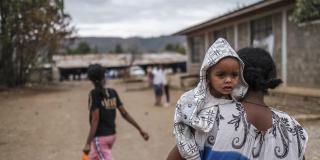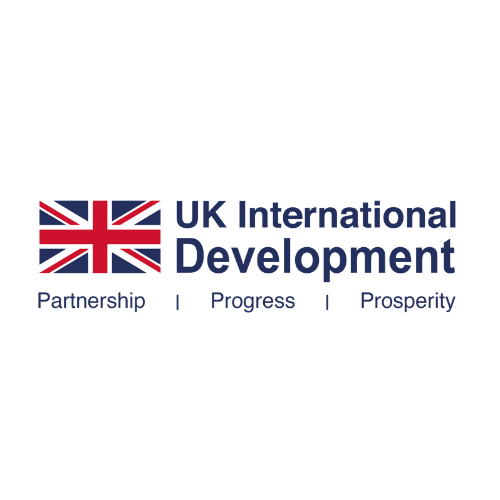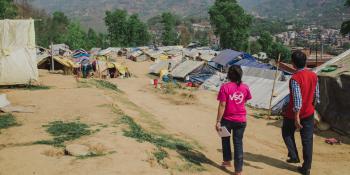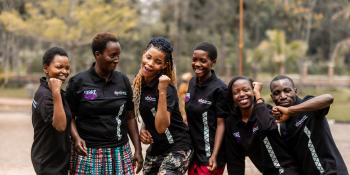
In 2019, the Ethiopian Ministry of Women, Youth and Children set out to develop a ten-year sector blueprint for a new national development plan for Ethiopia, to run from 2021-30. This plan followed on from two previous Growth and Transformation Plans (GTPs), which ran from 2010-15, and 2015-20 respectively, and would be known as ‘Ethiopia’s Ten-Year Perspective Plan.
Through our regional advocacy work in Africa, VSO decided to support the policy development process for the ‘Ten-Year Development Plan', assisting the Ethiopian Ministry of Youth, Women and Children, to put in place an inclusive and participatory process that would involve the participation of a wide cross-section of Ethiopian society. This was to ensure that the voices and perspectives of the most marginalised were able to feed into Ethiopia’s future development plans, and allow citizens to participate in national dialogues and influence the direction of government.
Contributing to policy outcomes
In order to do this, VSO first provided technical support for the organisation of a reflection workshop on the performance of the previous Growth and Transformation Plan (GTP II), which was intended to produce evidence and reflections which would feed into the formulation of the new Ten-Year Development Plan. During this workshop, representatives from women’s and youth organisations as well as federal and regional representatives were invited to share their views, which fed into policy documents produced by VSO and submitted to the Ministry.
VSO also participated in a high-level technical committee set up by the Ministry of Youth, Women and Children to provide technical assistance on the design and coordination of an inclusive and participator process for the development of the new Ten-Year Plan. We were represented on this committee by our Country Director Rahel Gebremariam, who was able to draw on VSO’s long experience of helping to develop inclusive policy processes in a range of contexts across Africa and Asia.
VSO also carried out our own participatory policy dialogues, facilitated by volunteers, which supported 1,856 people from across four regions in Ethiopia (Addis Ababa City, Bahir Dar, Hawassa and Assosa) to contribute to the policy development of the new Ten-Year Plan. In order to do this, we used our model of training and facilitating community, youth and national volunteers to carry out the dialogues, training 160 national volunteers and 30 youth volunteers in total.
The youth volunteers employed youth-friendly interactive methods to engage other young people to participate in the process, including through social media, and engaging with them through sports, drama and short videos. This enabled vulnerable groups to contribute to policy processes using evidence from their own lives, which were then developed into group priorities and written down as key policy messages, a vital opportunity for Ethiopians to help shape their own government’s priorities and engage as active citizens.
Policy outcomes
The policy outcomes submitted to the Ministry for inclusion in the 10-Year Plan related primarily to issues around gender inequality, and the issues experienced by young people in Ethiopia. The policy dialogues worked to identify the systemic underlying causes of gender inequality in Ethiopia and proposed recommendations to address them, related to issues of women’s participation in economic development, the need to address gender-based violence (GBV) and to increase women’s participation in politics.
VSO also submitted recommendations around creating an enabling environment for youth to constructively engage in the ongoing democratisation process, the need for young people to contribute to conflict prevention and peace building in order that these efforts are sustainable, and the need for the government to address some of the major economic and social challenges facing young people in the country.
Using our expertise and evidence of volunteering for development, we also pushed for the inclusion of volunteering as a powerful tool for development, and for this to be recognised and included within the new Ten-Year Plan. We submitted recommendations related to how volunteering can strengthen peace-building and social cohesion, and be a route into active citizenship.
Impact on the lives of primary actors
Ethiopia’s new 10-Year Development Plan was endorsed by the Cabinet of President Abiy in December 2020, and includes several of the policies that VSO worked to incorporate, and which emerged from our policy dialogues. For example, the document recognises volunteerism as a powerful tool to accelerate development and strengthen peace building efforts and social cohesion, and a route into active citizenship for Ethiopians, and reflects our contributions on gender inequality and the needs and priorities of young people.

In terms of practical outcomes, more attention has been paid by federal and regional authorities to the greater incidences of gender-based violence occurred during the COVID-19 pandemic. More awareness has been raised as to women’s rights and their legal avenues to seek justice if they experience GBV. This had led to an increased level of reporting of GBV to local authorities, and for better support for women and girls who face it through one-stop service centres at community level.
This work is funded by UKAid under the ‘Volunteering for Development’ programme which seeks to improve access to basic services and opportunities, increase the agency of extremely poor and vulnerable people and build their resilience to the shocks and stresses that threaten their advancement from poverty.
Find out more

UK Aid Volunteering for Development
Driving volunteer impact to deliver improved health, education and livelihoods outcomes for two million people.

Influencing and advocacy
VSO influences policy at national, regional and international levels. We bring the experience of volunteers, partners and marginalised people to decision makers.
